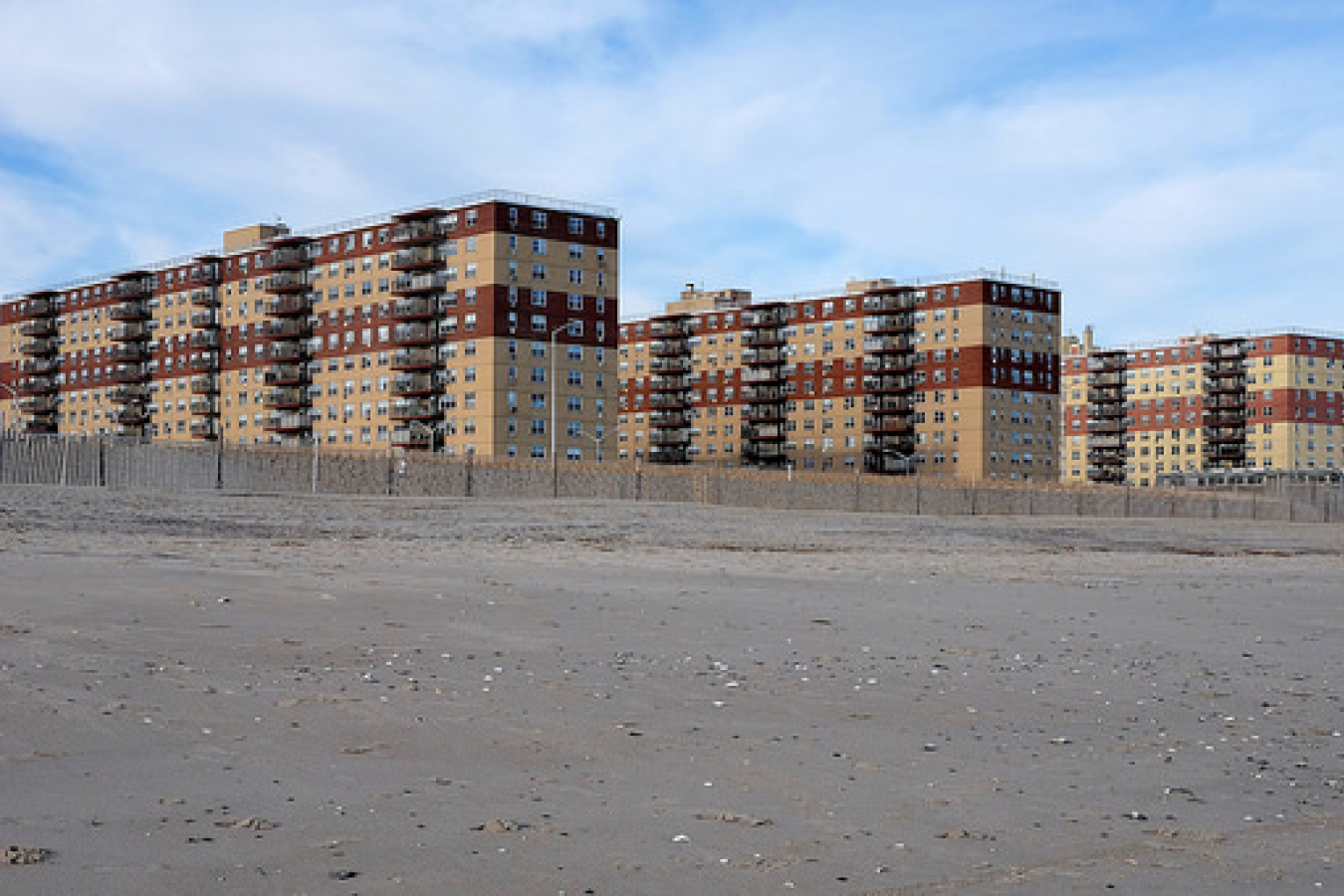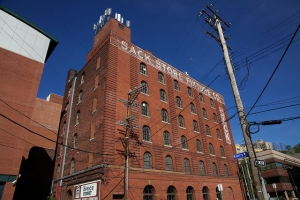Support migrant centric journalism today and donate

 • Watch This Video
• Watch This VideoMore than two-thirds of Americans support a guest-worker program that allows illegal immigrants to become citizens, but an almost equal percentage wants to crack down on businesses that hire them, according to a national poll released last week.
The numbers suggest a shift in thinking from March, when a similar poll by the Quinnipiac University Polling Institute showed that a majority of Americans opposed making it easier for illegal immigrants to become legal workers.
Mixed messages abound as momentum builds for comprehensive federal immigration reform following mid-term elections that gave Democrats control of Congress. The issue is critical to California business; many employers now rely heavily on immigrant labor, and the state is likely to depend on immigrants and their children for virtually all employment growth over the next 25 years.
"There's a continuing unmet need for labor in agriculture, high tech and the general work force. We need to reform immigration policies to recognize that need," said California Chamber of Commerce spokesman Vince Sollitto.
The state chamber supports a secure border, strong enforcement and more work visas to meet the demand of the labor market, and expects to make its views known, largely at the federal level, Sollitto said.
Other business groups that initially stood on the sidelines of the immigration fight have jumped into action.
The Sacramento-based California Landscape Contractors Association, which represents about 3,500 licensed contractors statewide, has established a task force on immigration, hired a lobbyist in Washington, D.C., and joined a national coalition of businesses and trade groups concerned about the shortage of semi-skilled and unskilled labor in the U.S.
"We've decided to step up to the plate and admit we need immigrant workers," said Larry Rohlfes, assistant executive director for the CLCA. "Our industry has a terrible time finding workers, both managerial and entry-level."
There's considerable angst about present workers, too. "We don't know how many of our workers are legal or illegal. We suspect a lot are undocumented," Rohlfes said.
The association has spent more than $100,000 in the past year on lobbying trips to the nation's capital and attempts to get other business groups involved in the immigration debate.
It's been a tough-sell.
"I'm somewhat perplexed," Rohlfes said. "We're either crazy to be so far out in front on this or (just) ahead of everybody else. I'd like to think the latter."
Narrow window
All the major players agree that something will be done on immigration reform next year, but there's a narrow window to work on policy before politics looms even larger in the debate. By June, the issue could become fodder for the 2008 presidential campaign.
Democratic control of Congress suggests a shift toward a guest-worker program and path that would give undocumented workers a path to naturalization, combined with increased immigration enforcement and a tightening of the nation's borders.
Any action would affect more than 11 million illegal immigrants who live in the U.S., about 2.5 million of them in California. Thousands more want to come.
No one knows how many immigrants live in Greater Sacramento illegally, but estimates start at 22,000 and range to more than three times that many. These numbers represent the equivalent of 2.4 percent to 7.5 percent of the estimated 900,000 wage-and-salary jobs in the four-county region.
When U.S. House speaker-elect Nancy Pelosi met with President Bush after the election, they agreed to work on bipartisan and comprehensive immigration reform. Others leading the push, Pelosi's deputy press secretary Drew Hammill said this week, are Democratic Rep. Luis Gutierrez from Illinois, Republican Rep. Jeff Flake from Arizona, Democratic Sen. Edward Kennedy from Massachusetts and Sen. John McCain from Arizona. McCain is considered a likely candidate for the Republican nomination for president.
"Our assumption is that an attempt will be made in 2007 and it will likely be modeled after aspects of the (2006) Senate bill, recognizing that some improvements will be needed," Hammill said.
The House and Senate offered far different versions of immigration reform this year before the politics of the mid-term elections put action on hold. The Senate bill combined border security with an expanded guest-worker program, a path toward naturalization and increased enforcement. The enforcement element included a new electronic system to allow employers to check the immigration status of workers, which is being tested in California and five other states.
The House version focused on enforcement, deportation and a fence along the U.S.-Mexico border.
"Bush will get his guest-worker thing that may or may not lead to citizenship," said University of California Davis law and Asian studies professor Bill Hing. Because of the political shift in Washington, "It's pretty safe to say that's going to happen in the next year."
In the House version, Hing saw a subtle change from support for family immigration categories to new ones that focus on special employment skills, a shift he doesn't support and hopes will not resurface.
"It goes to the stereotype that family immigration doesn't contribute to the economy," he said. "In fact, family members all work, too." Going offshore
The fight over what to do about illegal immigrants in the work force will be fierce.
"There are efforts to negate the laws already on the books and try to force amnesty down the throats of 300 million Americans and reward people who've broken the law," said Tim Bueler, a Sacramento native who now lives in Orange County and is a consultant for the Minuteman Project, which supports strict immigration controls and deporting undocumented immigrants. "We need to secure our borders immediately, go after employers who hire them and we don't need guest-worker or amnesty programs."
Try living without immigrant labor, countered Eliseo Medina, executive vice president for Service Employees International Union, which represents thousands of low-wage janitors and healthcare workers nationwide.
"Obviously, you would not have a vibrant economy without immigrants," Medina said.
"They are in construction, restaurants and hotels, landscaping and agriculture."
They also work at high-tech companies such as R Systems, a software development firm in El Dorado Hills that is scrambling for tech workers. It frequently brings in foreign workers on H-1B visas, a "non-immigrant worker" document intended to fill jobs that require special skills that the employer can't find among U.S. workers.
The current visa quota for high-tech workers is not enough to meet market needs, and it gets filled before the start of the fiscal year, said company founder and CEO Rekhi Singh.
The number of American students earning engineering degrees is falling, too.
"Instead of getting the work done here, we send it offshore -- to India," Singh said. Political postures
The divide over the issue is reflected in the region's congressional delegation.
"We are a nation of laws and we have a terrible problem with people constantly breaking the laws and staying in this country," said Rep. John Doolittle, a Roseville Republican. "I supported and voted for the fence and the House version."
Doolittle wants more border-control agents, jail cells and a mechanism for employers to quickly tell whether a worker is legal, but he acknowledges that's the easy part.
"The hard part is what do you do with the people already here? I've honestly not figured out a good answer for this."
Rep. Dan Lungren, a Republican from Gold River, was the GOP's floor manager in 1986 when the last major immigration reform bill was passed. It took a balanced approach by including strong enforcement and a path to legalization, he said in a recent interview. Amnesty happened;enforcement didn't.
Lungren supports employer sanctions but also backs a restrictive path to naturalization for some workers already here. He has suggested a new "blue card," an immigration document offering fewer privileges than the permanent residency document popularly known as a green card. The blue card, Lungren said, would offer special permanent-residence status to immigrants who've been in this country five years or more, have not committed a crime, have roots in the community, are learning or know English and participate in community service.
The blue card would not offer a road to citizenship. A cardholder would have to go back to his or her native country and start the process there.
"It would bridge the gap," Lungren said. "It is not a perfect solution."
Rep. Doris Matsui, a Sacramento Democrat, supports a path to naturalization for those in the country illegally. Her district alone picked up 27,000 undocumented immigrants between 2000 and 2005, according to statistics from the American Immigration Law Foundation in Washington, D.C. That places the congressional district third out of 53 in the state, behind two districts covering parts of Riverside, San Diego, Imperial and Orange counties.
"Industry in California needs workers," she said. "Unless we do something, there will be more and more pressure for illegal/undocumented workers. We need some path to legalization. Not amnesty, but something that allows them to live and work here."
Some are getting tired of waiting.
"People are leaving, going home," said Ann Kanter, an immigration attorney in Sacramento. Some clients whose employers filed for permanent status five years ago still don't have it, she said.
Everybody, regardless of which side they are on, seems to agree the current U.S. system is broken.
"We now have a president and Congress that knows they have to work together to solve problems," said SEIU's Medina.
"I think we have a window to try," he added. "But it's not a done deal."
Related:
• US unveils new citizenship test • US immigration has a positive effect on wages
• US study - Immigrants probably don't take jobs from Americans
• Immigrants sue US government for excessive citizenship delays
• Punitive immigration laws under fire in the US
• US universities losing international students, looking for more
• US population 300 million on Tuesday, 17 October, 2006





















